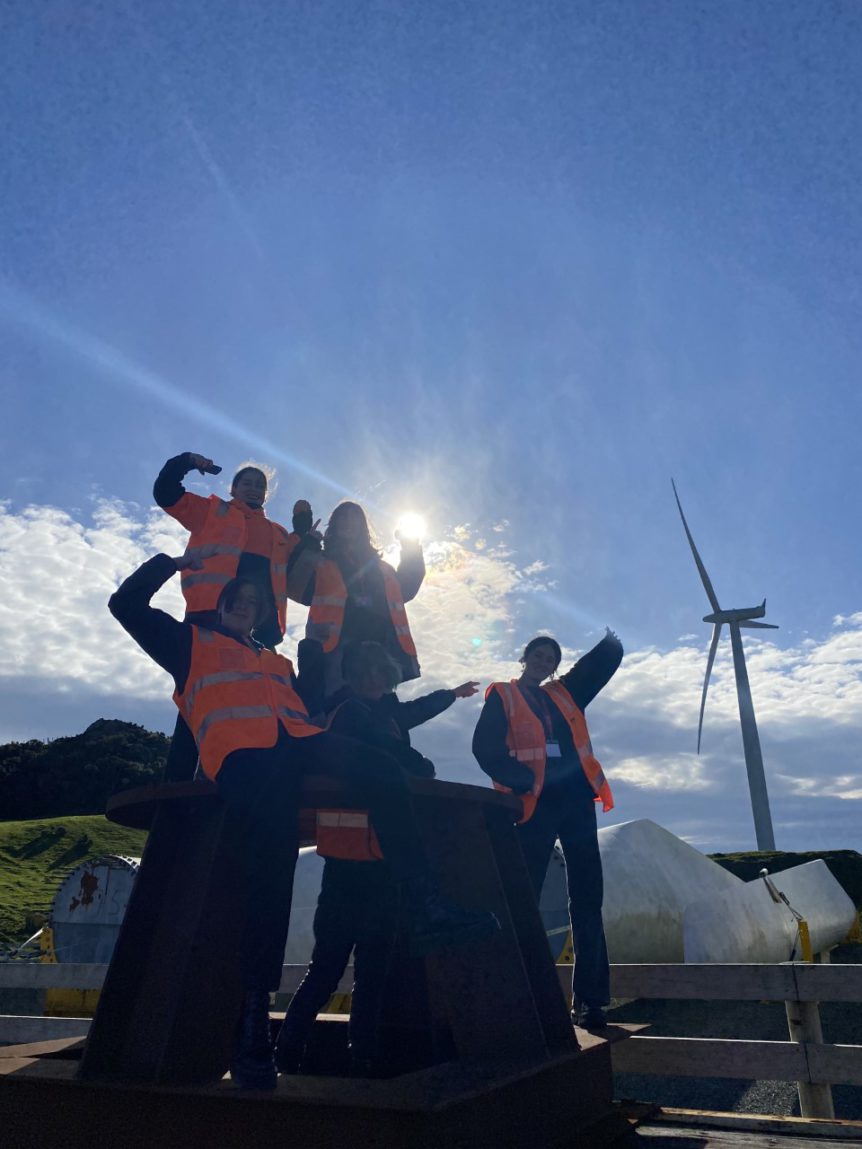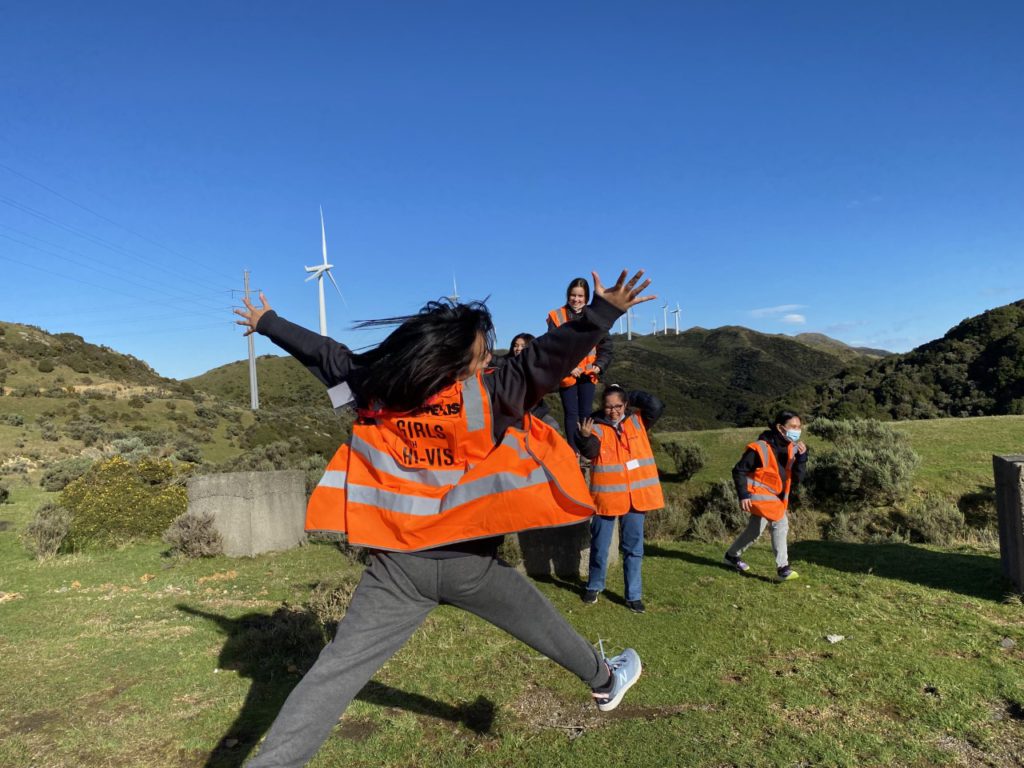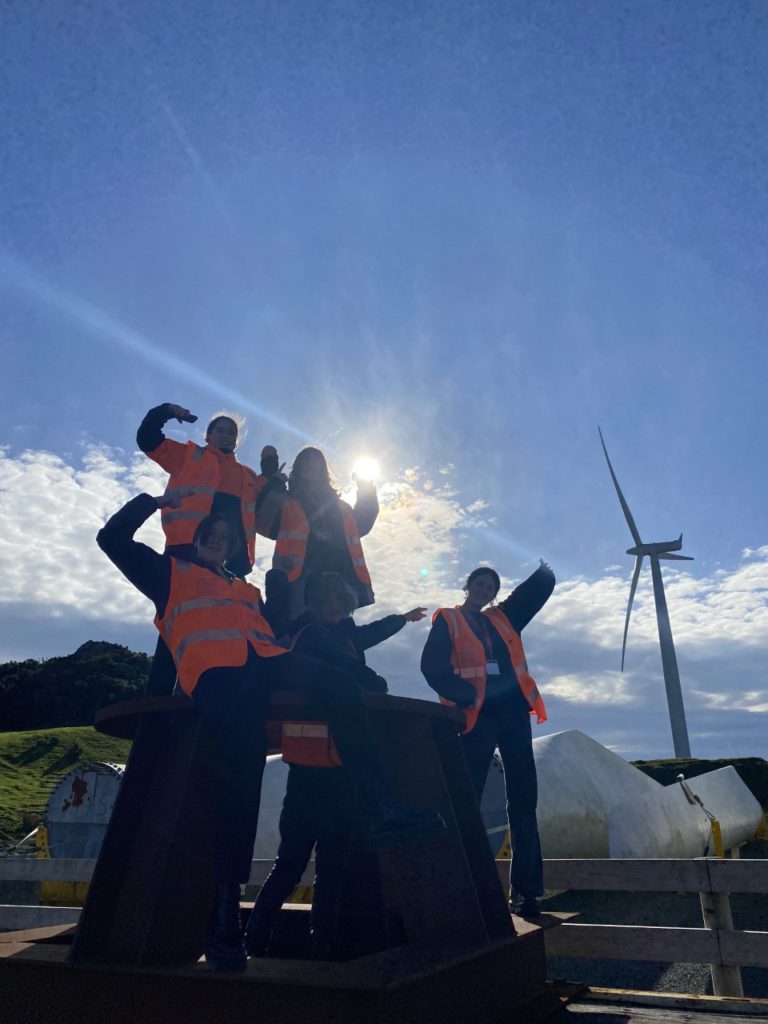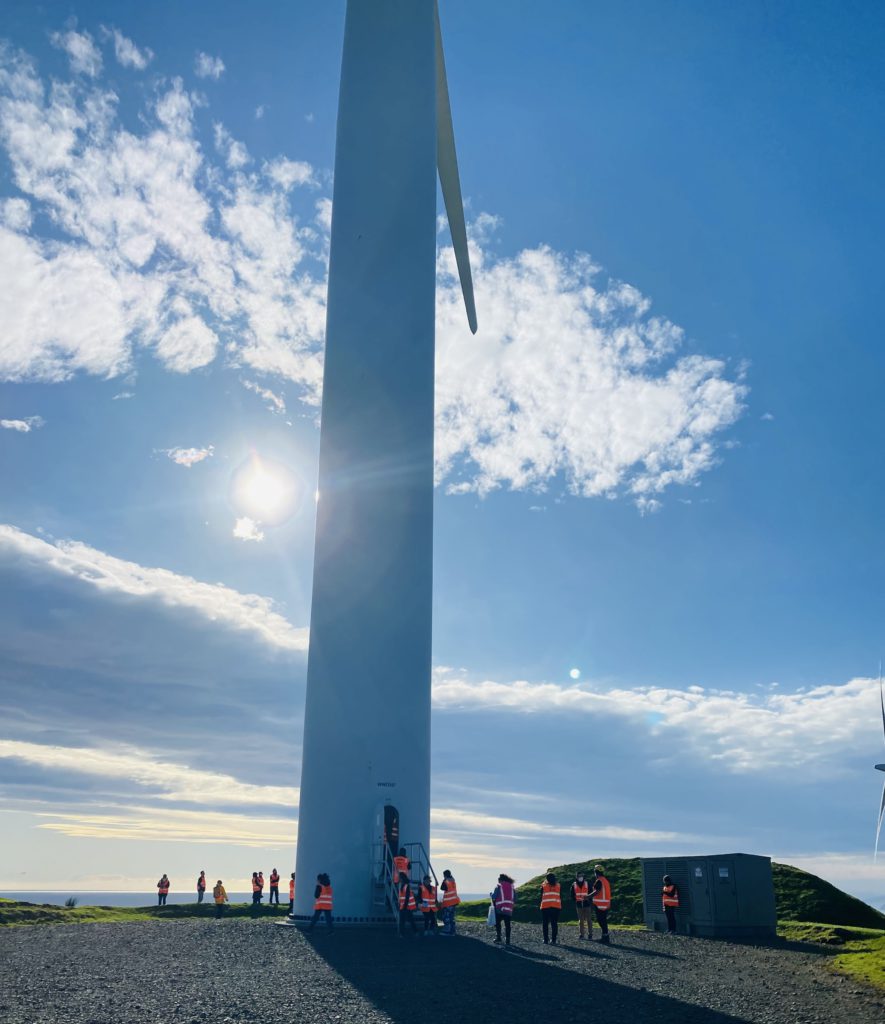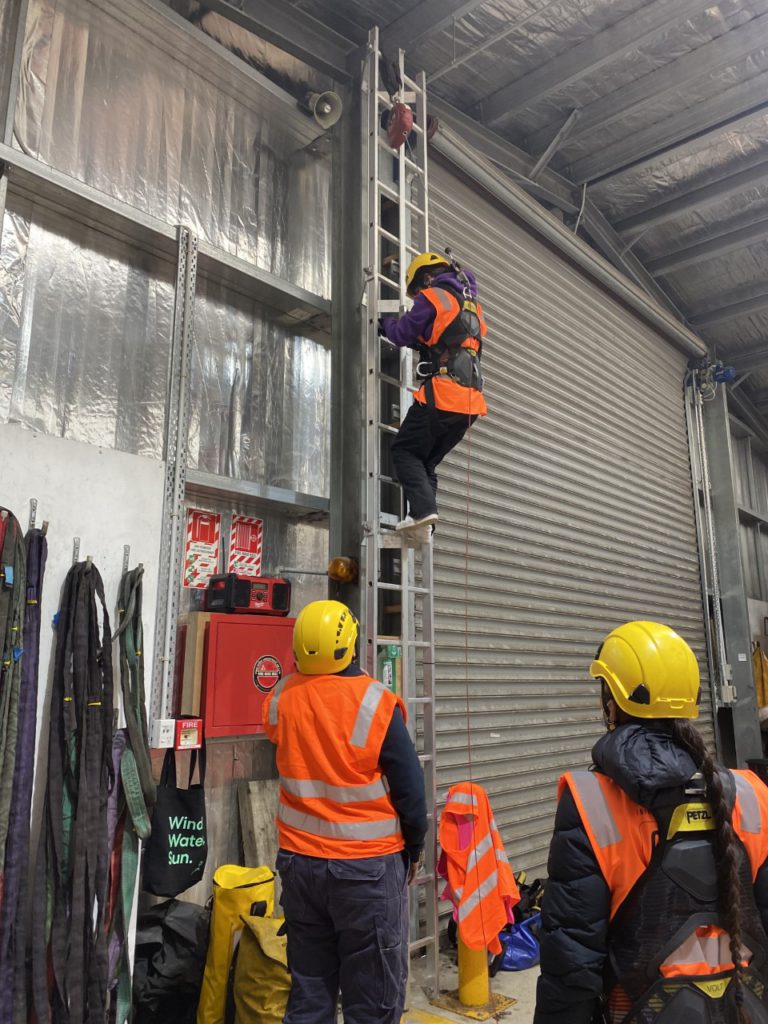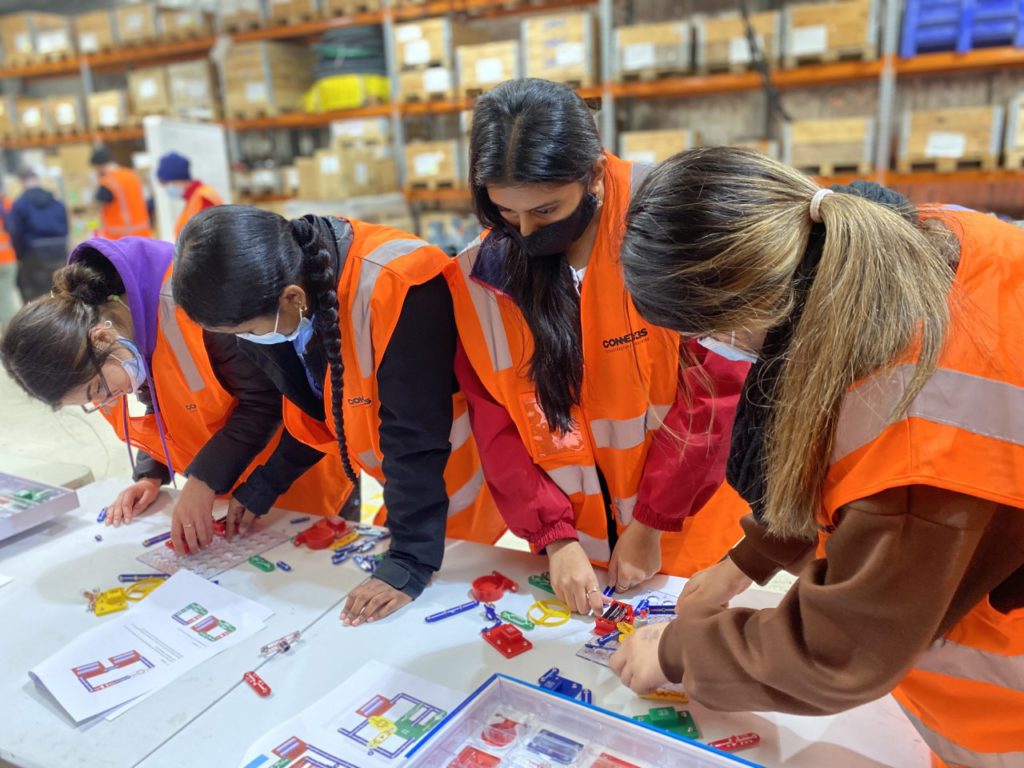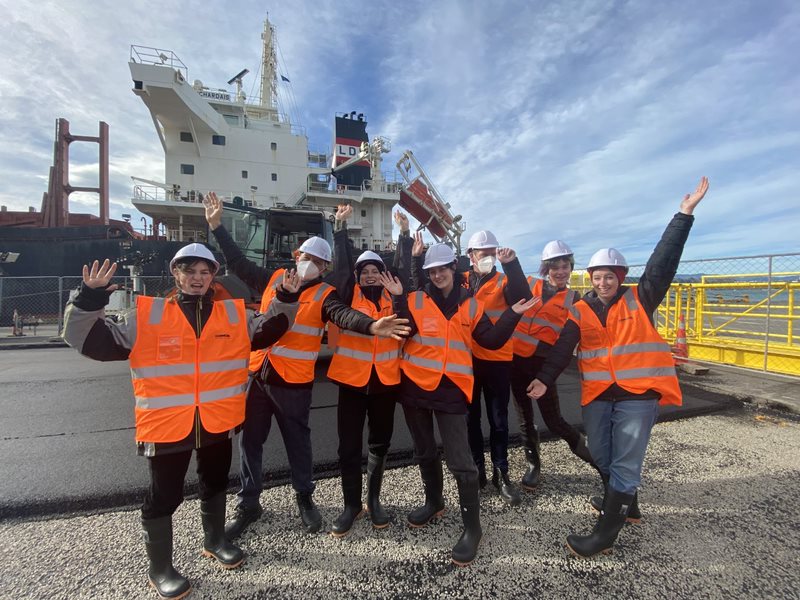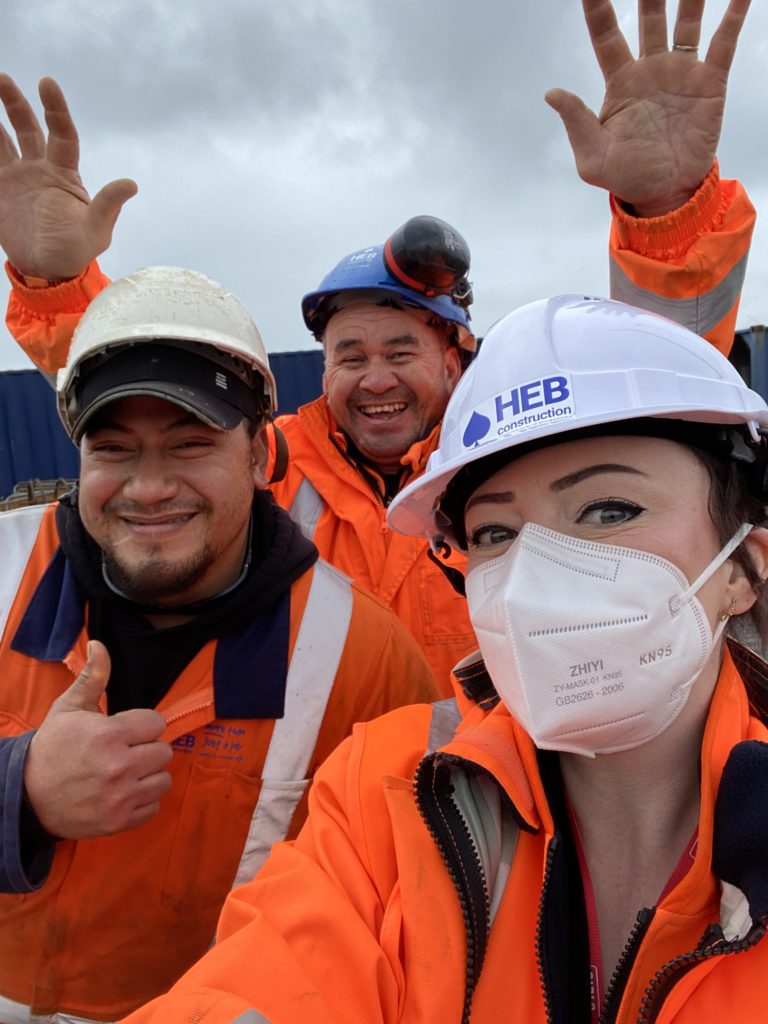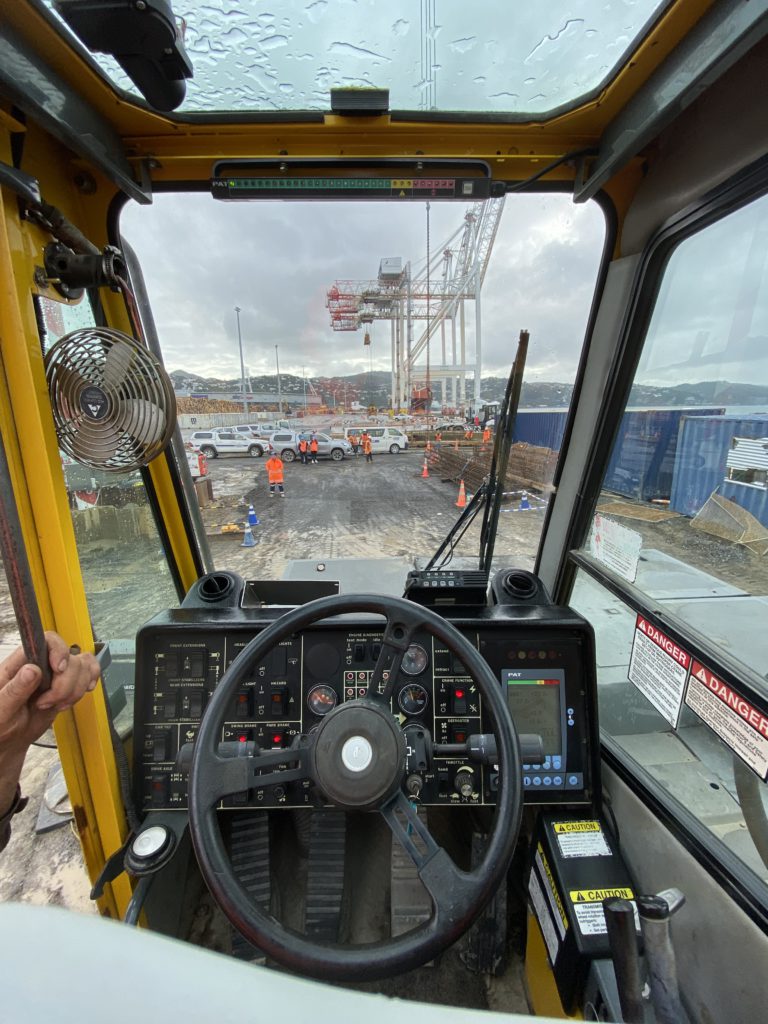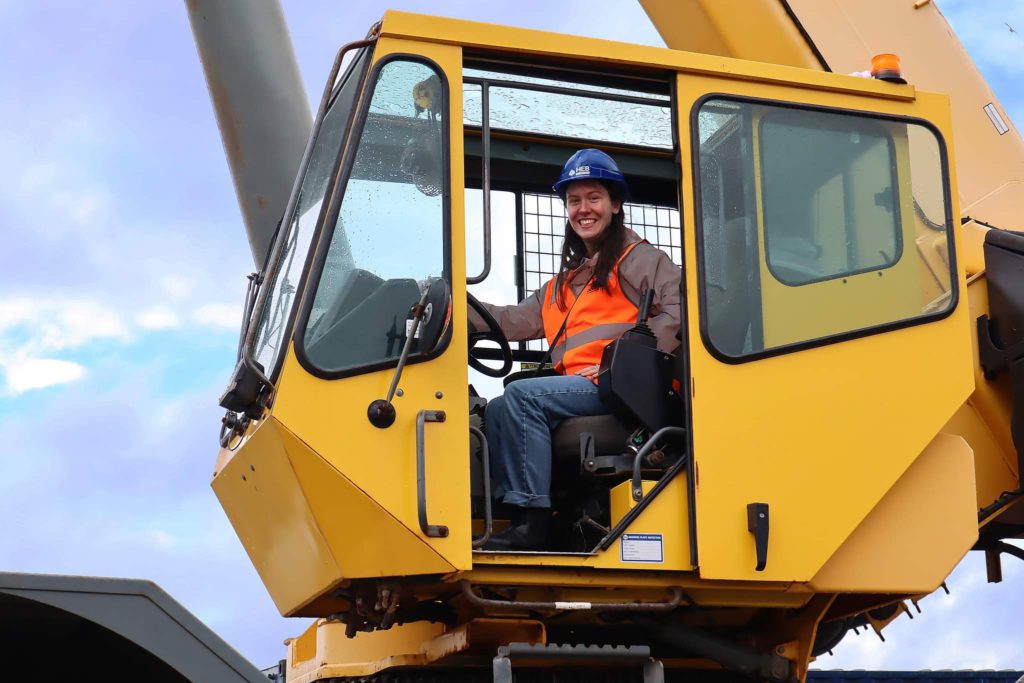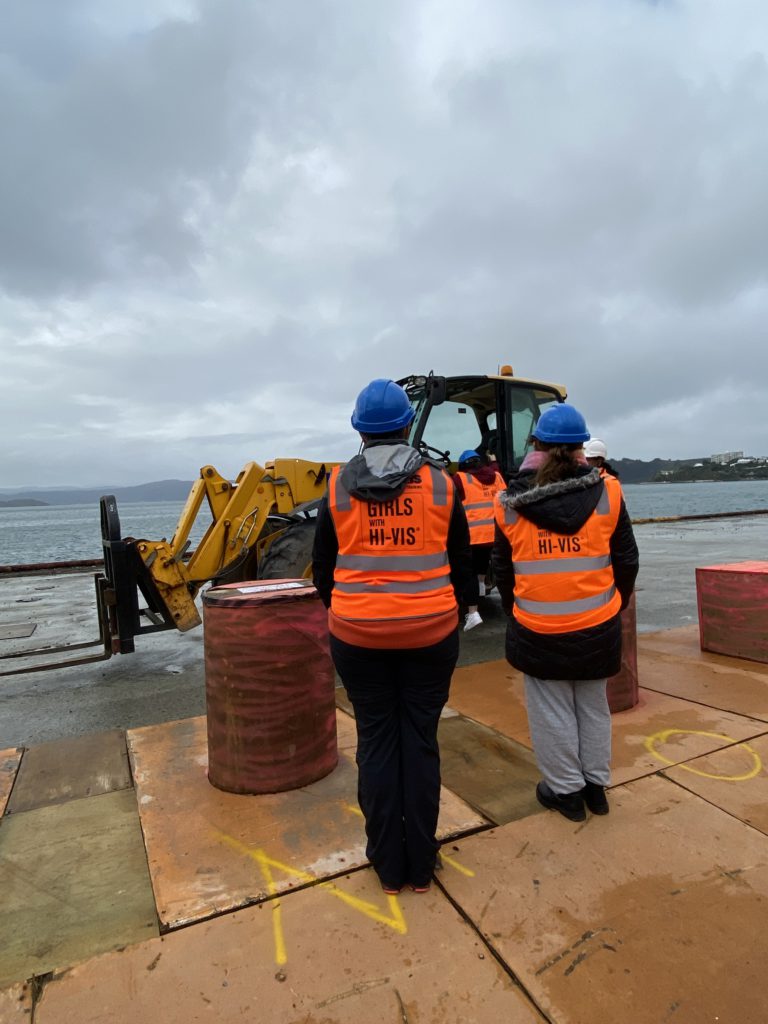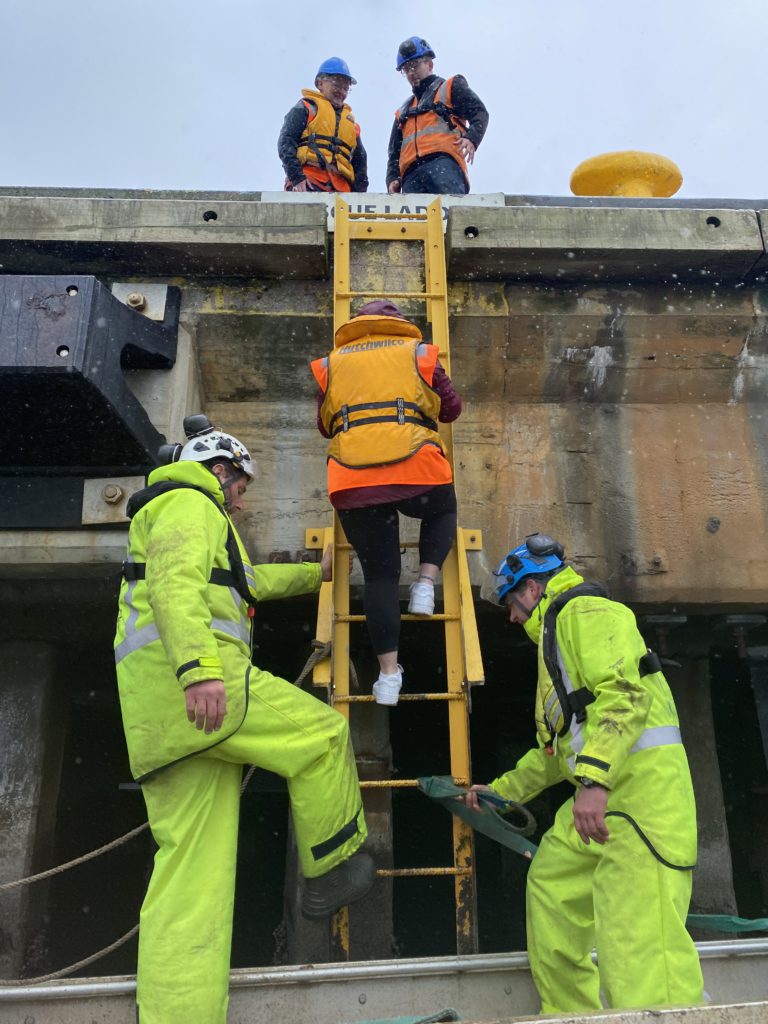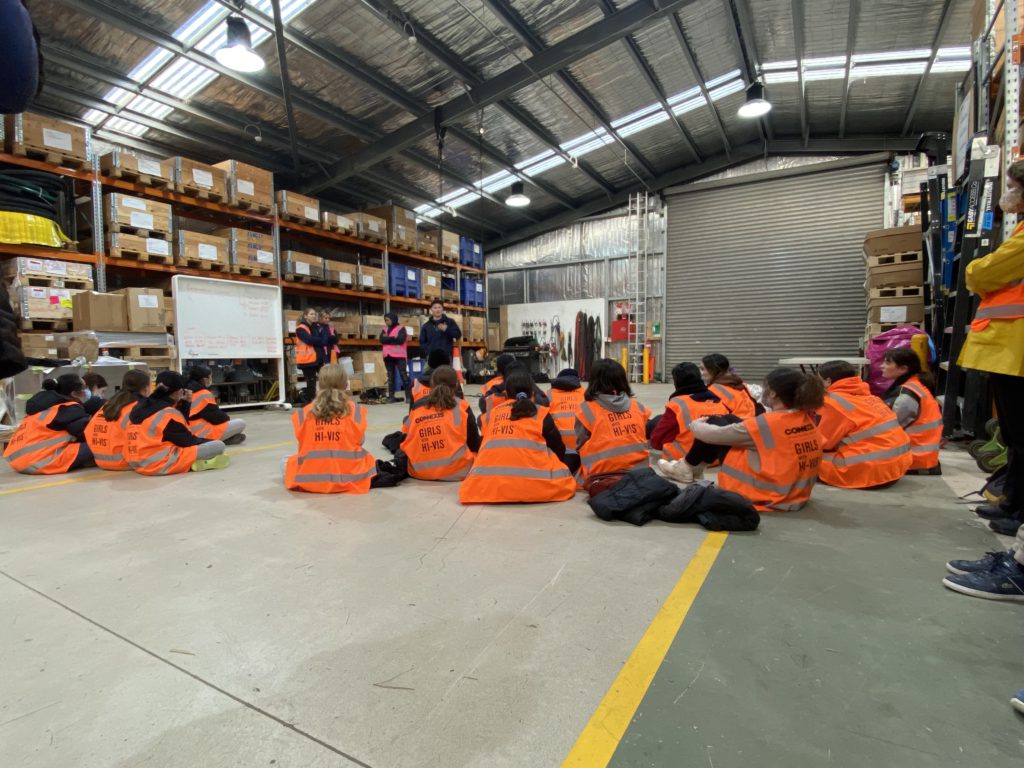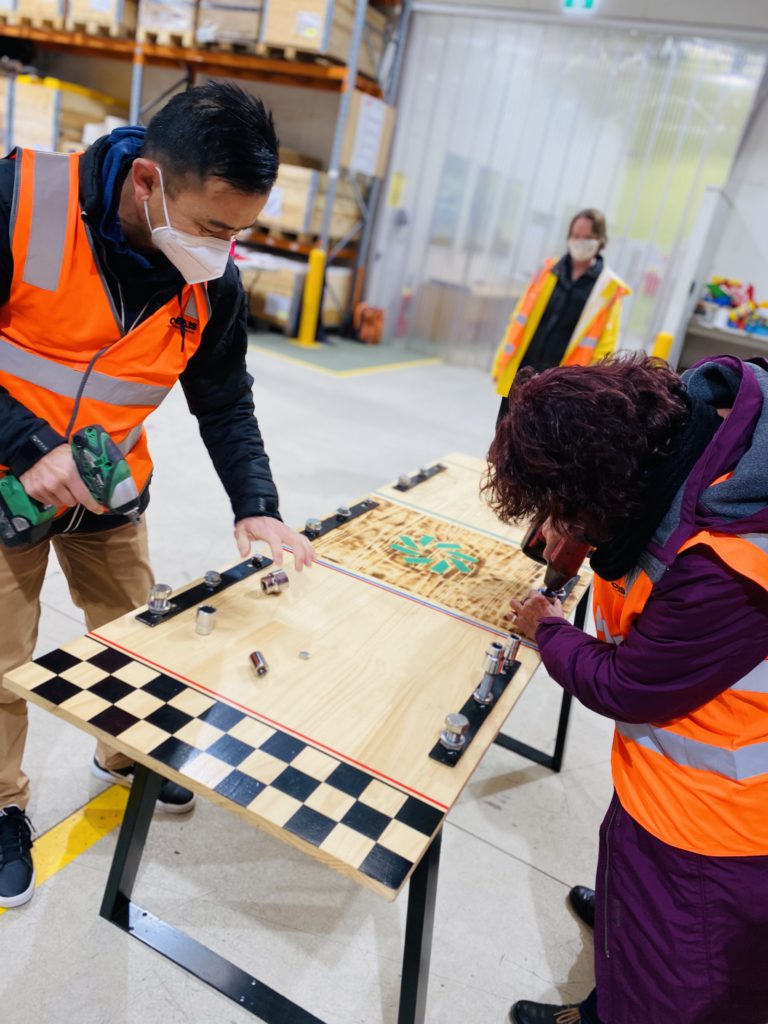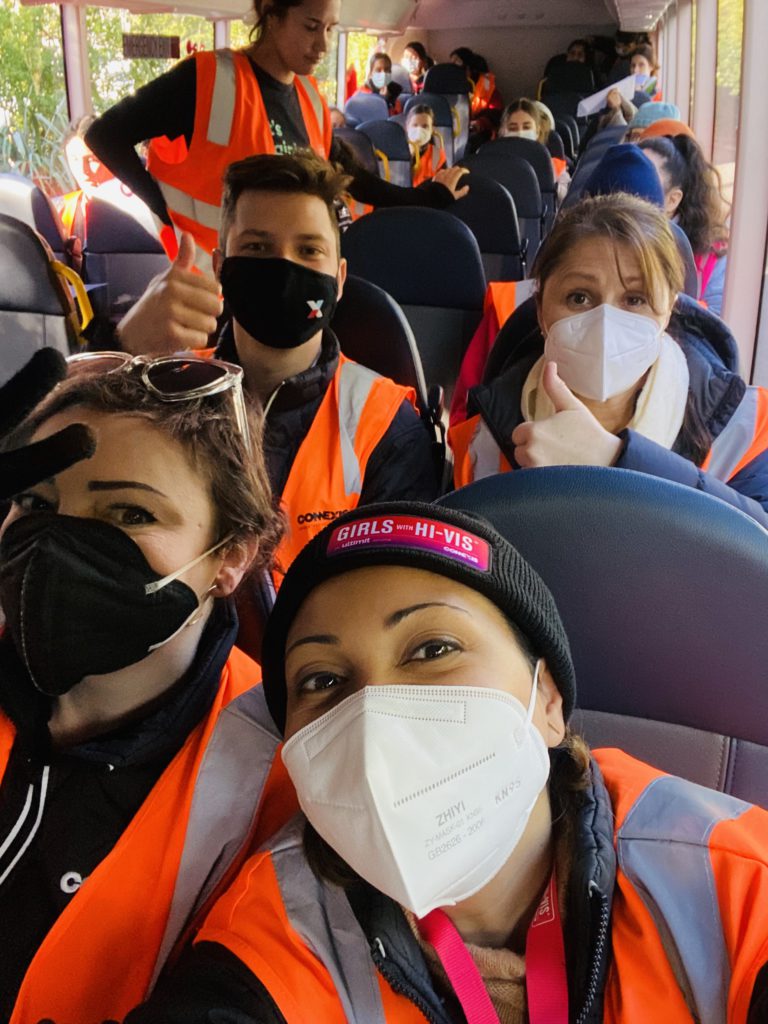From testing water quality to operating an excavator to seeing the inner workings of a wind turbine, New Zealand’s female secondary students have had a taste of careers in the infrastructure sector – and they’ve loved it.
‘Girls with Hi-Vis®‘ (GWHV) has seen events held nationwide throughout June to offer young women the opportunity to visit infrastructure companies in their region with their school, to try first-hand some of the skills the sector requires and to hear from other women already succeeding in the industry.
The ultimate goal of GWHV® is to attract more women into trade and technical roles in infrastructure industries of Civil, Energy, Telco and Water, where skills shortages are critical, and where women are under-represented in the workforce. For example, less than 14%* of the civil construction workforce are women, compared to 46.8%* of New Zealand’s total workforce.
Around 400 students from more than 60 schools attended dozens of GWHV® events around the country hosted by infrastructure companies. Events were held in Auckland, Waikato, Bay of Plenty, Gisborne, Hawkes Bay, Wellington, Christchurch, McKenzie, Otago and Southland.
GWHV® is an initiative of infrastructure training provider Connexis, which arranges, delivers, supports, and assesses work-based infrastructure learning as a division of Te Pūkenga, New Zealand’s largest tertiary education provider.
Connexis director Kaarin Gaukrodger says young women making career decisions often don’t realise a career in the infrastructure sector is even an option for them.

“GWHV® events not only make students away of infrastructure career possibilities, they connect the students with potential future employers in their local region so they have a tangible path to follow,”
– KAARIN GAUKRODGER, DIRECTOR
“Jobs within infrastructure beyond administration haven’t traditionally been presented as an option to young women considering their career options. Yet, every year we see at GWHV® that the opportunity to work in a varied, active and often physical job, working as part of a team, and challenging their minds with problem solving really enthuses the students.
“Working in infrastructure also involves travelling to remote parts of New Zealand that a lot of people never get to see and importantly earning a good income, and gaining a tertiary qualification while training on the job,” Gaukrodger says.
“Given the shortage of skilled workers across infrastructure and the lack of gender diversity, making infrastructure appealing and accessible to today’s female high school students will be essential to the successful completion of New Zealand’s major infrastructure projects. Females bring a different perspective to the industry and this will be crucial to stepping up New Zealand’s infrastructure for the future.”
She adds that females bring valuable diversity of thought to the workplace and while the industry needs more skilled workers the future of work with environmental and technological changes means they need innovation and new ways of working, and this is where females are key.
An estimated 44,000 additional workers are needed over the next five years to complete roading projects, water pipe upgrades, power line maintenance and fibre installation projects, among others.
“GWHV® events not only make students away of infrastructure career possibilities, they connect the students with potential future employers in their local region so they have a tangible path to follow,” Gaukrodger says.
“And they’re able to see for themselves how the work these different infrastructure companies are doing, benefits them and their local communities.”
This year a record number of businesses participated in GWHV®, including HEB Construction, Fletcher Construction, Higgins, Downer NZ, Waiotahi Contractors, Civtec, Fulton Hogan, Watercare Services Ltd, Citycare Water, CPB Contractors, Genesis Energy, Meridian Energy, Link Alliance, and Geotechnics.
Feedback from GWHV 2022 events:
Meridian Energy, West Wind Farm, Mākara, Wellington
“I could see myself doing this and now that I have attended this event I am more inspired to go down this path.” – Manuela, St Catherine’s College.
“I have a sore face from smiling after seeing the girls have such a great time.” – Jodene Fitness, teacher, Hutt Valley High School.
“It was a great day because there was a lot of practical things to experience. It’s nice for the girls to learn about other jobs available to them outside of the gender stereotypes,” – Heather Miller, teacher, St Catherine’s College.
HEB Construction, Wanaka
“I’m really keen to get as many girls involved and that’s why it’s awesome having all these girls out here today, being able to have a go and find out what it is like to work in this industry,”
– Tess Allen, HEB Construction graduate engineer and event organiser.
Higgins, Palmerston North
“It was a truly amazing opportunity to connect with young females, share our stories, industry and opportunities. Watching the students fully immerse themselves in the practical experiences was a real highlight. I look forward to continuing engagement and welcoming those females taking the next step into one of our Early In Career opportunities.”
– Alexcia Dellabarca, Higgins – Fletcher Construction Training and Development programme lead and GWHV speaker.
Downer, Gisborne
“You don’t really notice all the females until you get to see inside the company, and here they are helping everything along and everything to work.”
– Catherine Moles, student Campion College.
“I came here today to show my brothers up! It’s known as a male industry but that doesn’t mean a wahine can’t do it herself. My stepbrother works in forestry and drives haulers and diggers. I thought it would be cool to get an insight into what it would be like if I joined something like this.”
– Taylah Kingi, student, Campion College.
*Figures from Infometrics/Statistics NZ April 2022.

